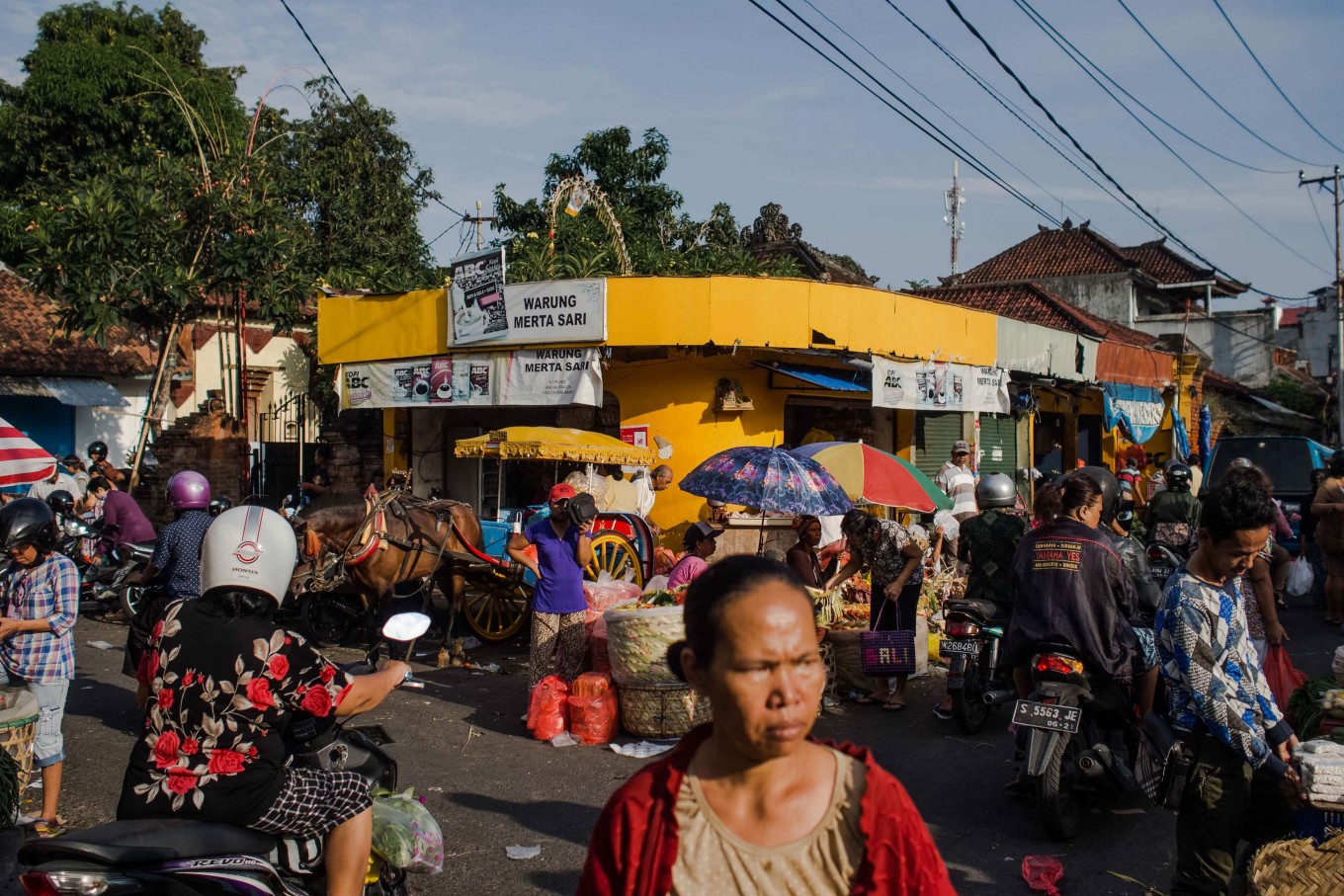Government forms micro lending holding firm as part of financial inclusion drive
The holding company plans to serve ultra-micro companies with annual revenues of under Rp 300 million (US$20,696) and who require loans under Rp 10 million.
Change Size

W
ith the recent formation of a state-owned micro lender holding firm, Indonesia’s tiniest businesses may expect easier access to more affordable loans, paving the way for the leveling up of an economic sector that absorbs the majority of the country’s workforce.
The government issued earlier this month Government Regulation (PP) No. 73/2021 that hands over a majority stake in financing firm PT Permodalan Nasional Madani (PNM) and pawnshop chain PT Pegadaian to small business-focused lender Bank Rakyat Indonesia (BRI) to form the holding company, popularly called the “ultra-micro holding”.
The holding firm is not only expected to help micro but also ultra-micro enterprises. The former are defined as businesses with an annual gross revenue of under Rp 2 billion (US$138,020) according to the PP while the latter have revenues under Rp 300 million as defined by the Small And Medium Enterprise (SME) Center at the University of Indonesia (UI).
UI SME Center head Dewi Meisari Haryanti said the consolidation would enable the holding to reach more micro businesses and thus erode their reliance on informal lenders. The holding could offer more ultra-micro loans of under Rp 10 million per business.
“So far, many formal institutions are not inclusive, which means many ultra-micro businesses are unable to access loans,” Dewi told The Jakarta Post on July 19.
“The ultra-micro holding should be able to reduce small businesses' dependence on high-risk informal financing sources.”
On top of that, the consolidation would allow the three state-owned companies to operate more efficiently through economies of scale and thus, lower interest rates, she said.
Micro enterprises absorb 80 percent of Indonesia’s workforce and contribute around 30 percent of its GDP, yet they often struggle to secure the funding needed to maintain and upscale operations due to an inability to provide collateral assets and financial reports.
When formal financial institutions close their doors, their informal counterparts such as moneylenders and loan sharks often step in with less paperwork but super high interest rates. The Financial Services Authority (OJK) has urged small businesses to avoid such services.
More than two-thirds of 45 million ultra-micro businesses in Indonesia are unable to access loans from formal financial institutions, according to a 2018 study by BRI, the Asian Development Bank (ADB) and Cooperatives and SMEs Ministry.
Read also: SOE Ecosystem Integration in the UMi–MSME sector, the Government Consolidates Through BRI
Concurring with Dewi, Association of Indonesian MSMEs (Akumindo) chairman Ikhsan Ingratubun said the consolidation would give small businesses more options to secure loans using the existing channels under BRI, PNM and Pegadaian.
“This consolidation will ease our access to financing,” Ikhsan told the Post on July 19.
Forming the holding
Publicly listed BRI closed a deal with its stakeholders on Thursday to execute a rights issue plan that will raise the funds to pay the government for PNM and Pegadaian.
BRI plans to issue up to 28.68 billion Series B shares with a nominal value of Rp 50 each to acquire a 99.99 percent stake in both PNM and Pegadaian. The government will retain one very powerful Series A stake in both companies.
The lender estimated that its total assets will rise by more than 7 percent to Rp 1.5 quadrillion, while its liabilities will rise by more than 6 percent to Rp 1.2 quadrillion, following the rights issue. The corporate action is expected to lift BRI’s net profits by more than 14 percent to Rp 8 trillion this year.
Read also: Rights issue aims to expand MSME loans, says BRI
Mirza Adityaswara, executive director at the Indonesian Banking Development Institute (LPPI), told the Post on Tuesday that the consolidation would further strengthen BRI’s business as the lender could tap into PNM’s and Pengadaian’s customer bases. In return, PNM and Pengadaian would benefit from a capital injection boost and better risk management systems from BRI.
“Thus, the loan disbursement in those companies will thrive but at the same time remain prudent,” Mirza said.
More than a loan
BRI president director Sunarso said in his statement on Thursday that integrating the three companies was ultimately expected to boost financial inclusion among micro businesses.
“By tapping into the potential of ultra-micro loans, the accessibility of financial services to this business segment can be optimized,” Sunarso said.
However, UI’s Dewi warned that low digital and financial literacy limited micro businesses’ ability to upscale operations.
“Without an integrated financial literacy program, I’m afraid ultra-micro loans will only have an impact on helping the business survive but they will never develop further,” she said.
Ronald Walla, chair of SMEs at the Indonesian Employers Association (Apindo), hoped the holding would work with researchers, academics and regulators to improve the domestic MSME ecosystem.
“We hope that there will be a funding collaboration with stakeholders who assist the MSME community,” Ronald told the Post on Monday.









